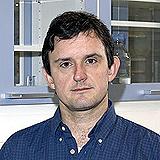Durham, NC – A team led by researchers at Newcastle University, UK has successfully created a model of the cells found in the lungs that can be used to replicate how COVID-19 infects the airways. This information, reported today in the STEM CELLS journal, paves the way for broader studies of viral lung infections using a cost-effective system that can easily be manufactured on a large scale.
COVID-19, which to date has resulted in more than 3.5 million deaths worldwide, has brought on an urgent need for airway models that can be used to develop effective therapies. While the use of in vitro (outside the body) models generated from primary pulmonary epithelial cells that mimic the human airways has increased in popularity over recent years, their availability is limited to primary samples that can differ significantly depending on the various donors’ genetic backgrounds.
Induced pluripotent stem cells (iPSCs) offer a potential way around this drawback. Generated from adult stem cells found in fat, skin, blood and elsewhere, they can be reprogrammed to become every other cell type in the body, including those making up the airways. Additionally, iPSCs can propagate indefinitely and, thus, provide a large supply of cells with the genetic background of a single donor, rather than the varied backgrounds of the multiple donors hindering primary pulmonary epithelial cell models.
In the study reported in STEM CELLS, airway epithelial cells were generated from iPSCs (using a mixed population of lung progenitors) by culturing them on a polyester membrane to allow formation of a confluent monolayer, then exposing them to an air liquid interface to induce differentiation into a pseudostratified epithelial model.
The researchers then went on to demonstrate that their model is composed of the cell types found in the human upper airway epithelium — including functional ciliated cells — and that the cells are capable of secreting mucus and of being readily infected by SARS-CoV-2, the virus that causes COVID-19.
“The infected model cells also secreted cytokines at levels corresponding to the behavior of the airway epithelium in the body following SARS-CoV-2 infection,” said Lyle Armstrong, Ph.D., professor of stem cell sciences at Newcastle University, UK and corresponding author on the study. (Cytokines are proteins that signal the immune system to take action during an infection.)
“Our protocol not only simplifies the manufacture of cellular models of the human upper airways,” he added, “but it has a distinct advantage in that we have eliminated the need for primary samples that differ in genetic backgrounds. Our next step will be to expand on this model by including immune cell components.”
“The development of this reproducible and highly scalable protocol to manufacture upper airway models is very important for the study of respiratory viral infections such as SARS-CoV-2 and others,” said Dr. Jan Nolta, Editor-in-Chief of STEM CELLS. “Having such models available will greatly enhance the development of future therapies and will allow the field to be better prepared to study new viruses and viral variants.”
###
The full article, “SARS-CoV-2 infects an upper airway model derived from induced pluripotent stem cells,” can be accessed at https:/
About the Journal: STEM CELLS, a peer reviewed journal published monthly, provides a forum for prompt publication of original investigative papers and concise reviews. The journal covers all aspects of stem cells: embryonic stem cells/induced pluripotent stem cells; tissue-specific stem cells; cancer stem cells; the stem cell niche; stem cell epigenetics, genomics and proteomics; and translational and clinical research. STEM CELLS is co-published by AlphaMed Press and Wiley.
About AlphaMed Press: Established in 1983, AlphaMed Press with offices in Durham, NC, San Francisco, CA, and Belfast, Northern Ireland, publishes three internationally renowned peer-reviewed journals with globally recognized editorial boards dedicated to advancing knowledge and education in their focused disciplines. STEM CELLS® is the world’s first journal devoted to this fast paced field of research. THE ONCOLOGIST® is devoted to community and hospital-based oncologists and physicians entrusted with cancer patient care. STEM CELLS TRANSLATIONAL MEDICINE® is dedicated to significantly advancing the clinical utilization of stem cell molecular and cellular biology. By bridging stem cell research and clinical trials, SCTM will help move applications of these critical investigations closer to accepted best practices.
About Wiley: Wiley, a global company, helps people and organizations develop the skills and knowledge they need to succeed. Our online scientific, technical, medical and scholarly journals, combined with our digital learning, assessment and certification solutions, help universities, learned societies, businesses, governments and individuals increase the academic and professional impact of their work. For more than 200 years, we have delivered consistent performance to our stakeholders. The company’s website can be accessed at http://www.
Media Contact
Communications Department
[email protected]
Related Journal Article
http://dx.





